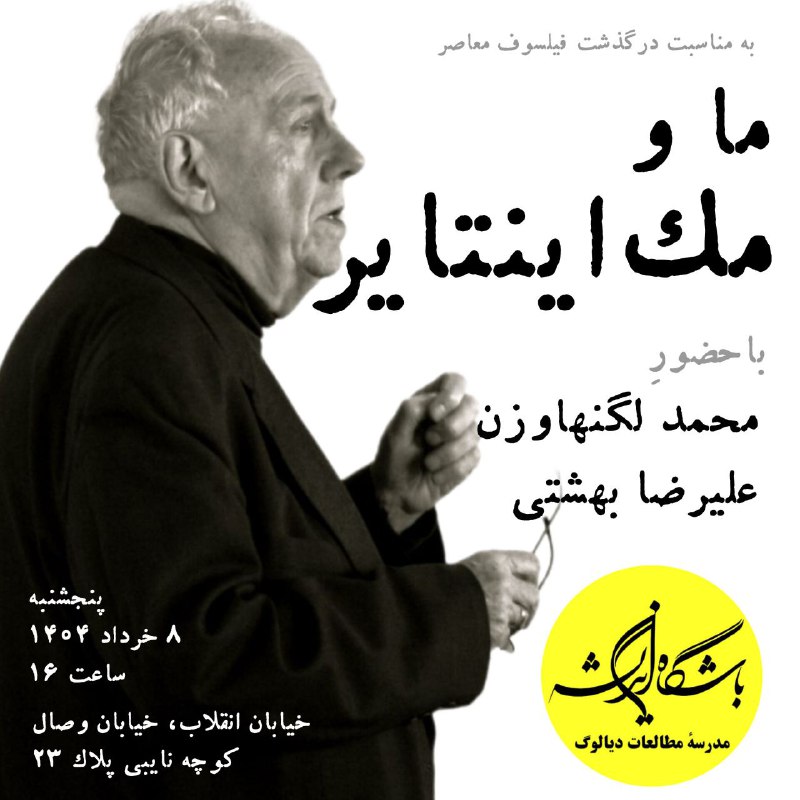tgoop.com/bashgahandishe/12815
Last Update:
چکیدۀ ارائه نشستِ ما و مکاینتایر
ALASDAIR MACINTYRE ON MORALITY, HUMAN RIGHTS, AND NARRATIVE ETHICS
📝دکتر حاج محمد لگنهاوزن
Abstract: This paper offers an Islamic perspective on MacIntyre's critique of modern moral discourse, human rights, and on his advocacy of narrative ethics. MacIntyre argues that modern morality, characterized by expressivism and emotivism, obscures genuine moral reasoning, as seen in the unresolved debates between utilitarianism and rights-based ethics, which he collectively terms "Morality." As an alternative, he proposes a teleological, Aristotelian-Thomistic framework enriched by narrative ethics, using life stories of figures like Vasily Grossman and Sandra Day O’Connor to illustrate how moral decisions should align with human flourishing rather than abstract principles or consensus. MacIntyre’s skepticism toward human rights leads him to view them as fictions that lack grounding and inhibit practical reasoning, though MacIntyre later concedes their rhetorical necessity in contemporary discourse, as seen in his analysis of the stance of the Catholic Church. From a Muslim viewpoint, Despite the value of MacIntyre’s narrative approach and critique of modern moral impasses, his framework for resolving fundamental disagreements is questionable, given that moral truth does not depend on consensus. There are parallels with Islamic concepts like patience (sabr) and eschatological waiting (intizār), reflected in the epigram from George Campbell Hay’s poem that MacIntyre discusses, and which resonates with Qur’anic virtues. A cautious endorsement of human rights language for Muslims is suggested, integrating it with Islamic notions of justice and Haqq (truth) within culturally rooted narratives. While the value MacIntyre’s insights is undeniable, there remains room for skepticism about his proposals for overcoming moral impasses. It is argued that there is a need for critical engagement with modern moral language while staying true to Islamic ethical traditions.
@dialogeschool | @bashgahandishe
BY باشگاه اندیشه

Share with your friend now:
tgoop.com/bashgahandishe/12815
